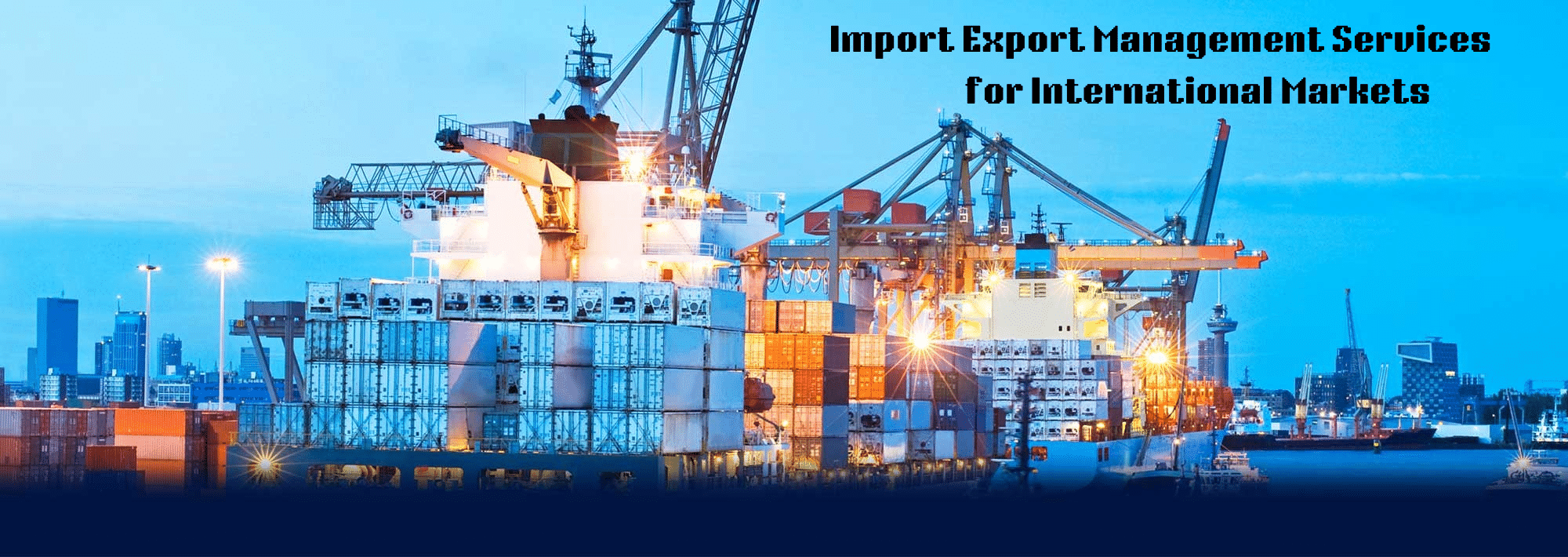Professional import-export management services play a crucial role in facilitating global trade by ensuring smooth and efficient transactions between international markets. These services encompass a wide range of activities, including customs clearance, logistics coordination, compliance with international regulations, and documentation management. Expert import-export managers help businesses navigate complex trade laws, optimize supply chains, and mitigate risks associated with cross-border transactions. By leveraging their industry knowledge and networks, these professionals enable companies to expand their reach, reduce operational costs, and maximize profitability in global markets, making them essential partners for businesses seeking to thrive in international.
The Role of Import-Export Management Services
Import-export management services act as facilitators, ensuring that goods and services move efficiently across borders. These services encompass a wide range of activities, including compliance with international trade regulations, documentation, logistics coordination, and market analysis. By outsourcing these functions to experts, businesses can focus on their core competencies while minimizing the risks associated with international trade.
Key Functions of Import-Export Management Services
- Regulatory Compliance
- Navigating the maze of international trade regulations is a daunting task. Import-export management services ensure compliance with customs requirements, tariffs, and trade agreements, reducing the risk of penalties and delays.
- Documentation and Paperwork
- Accurate documentation is critical in global trade. Professionals handle invoices, packing lists, bills of lading, certificates of origin, and other necessary paperwork to ensure smooth transactions.
- Logistics and Supply Chain Coordination
- From arranging transportation to managing warehousing, these services streamline the logistics process. They work with shipping companies, freight forwarders, and customs brokers to ensure timely delivery.
- Market Research and Analysis
- Understanding market trends, demand patterns, and competitive landscapes is crucial for success. Import-export managers provide insights that help businesses make informed decisions.
- Risk Management
- International trade involves risks such as currency fluctuations, geopolitical tensions, and supply chain disruptions. Import-export services mitigate these risks through strategic planning and contingency measures.
Benefits of Professional Import-Export Management Services
Outsourcing import-export management offers numerous advantages, making it an indispensable asset for businesses venturing into international markets.
- Cost Efficiency
- Managing imports and exports internally can be expensive, requiring significant investment in infrastructure, technology, and personnel. Professional services provide cost-effective solutions by leveraging economies of scale.
- Expertise and Experience
- Import-export service providers possess in-depth knowledge of international trade practices, enabling businesses to navigate complexities with ease.
- Time Savings
- By delegating logistical and administrative tasks, businesses can focus on strategic initiatives, accelerating their growth trajectory.
- Enhanced Customer Satisfaction
- Efficient supply chain management ensures timely delivery, improving customer satisfaction and fostering long-term relationships.
- Access to Global Networks
- Professional service providers have established networks of partners, including suppliers, distributors, and regulatory authorities, facilitating smooth operations across borders.
Challenges in International Trade and How Import-Export Services Address Them
Despite its advantages, international trade presents several challenges. Import-export management services are designed to address these hurdles effectively.
- Regulatory Barriers
- Different countries have varying trade policies and regulations. Service providers ensure compliance by staying updated on global trade laws and leveraging their expertise.
- Logistical Complexities
- Coordinating transportation, warehousing, and distribution across multiple countries can be overwhelming. Import-export services streamline these processes, ensuring efficiency.
- Cultural and Language Differences
- Understanding local customs and languages is crucial for successful market entry. Professional services bridge cultural gaps, facilitating effective communication and collaboration.
- Currency and Payment Risks
- Fluctuations in currency exchange rates and payment delays can impact profitability. Import-export managers mitigate these risks through hedging strategies and secure payment methods.
- Supply Chain Disruptions
- Events like natural disasters, pandemics, or political unrest can disrupt supply chains. Service providers develop contingency plans to minimize disruptions and maintain continuity.
Key Industries Benefiting from Import-Export Management Services
- Manufacturing
- Manufacturers rely on import-export services to source raw materials and distribute finished goods globally.
- Retail and E-Commerce
- Retailers and online businesses benefit from efficient logistics and compliance support, enabling them to serve international customers.
- Agriculture and Food Processing
- Exporting perishable goods requires specialized handling and documentation, which import-export services provide.
- Technology and Electronics
- These industries benefit from streamlined supply chains and compliance with stringent regulatory standards.
- Pharmaceuticals and Healthcare
- Import-export services ensure the safe and timely delivery of medical supplies, adhering to strict quality standards.
Choosing the Right Import-Export Management Service Provider
Selecting a reliable service provider is crucial for achieving success in international markets. Here are some factors to consider:
- Experience and Track Record
- Look for providers with a proven history of successful international trade operations.
- Global Network
- A strong network of partners and contacts ensures smoother transactions and better market access.
- Technology Integration
- Providers that use advanced technologies for tracking, reporting, and communication offer greater efficiency and transparency.
- Customized Solutions
- Choose a provider that tailors its services to meet your specific business needs and goals.
- Customer Support
- Reliable customer support is essential for addressing issues promptly and ensuring seamless operations.
The Future of Import-Export Management Services
As global trade continues to evolve, import-export management services are poised to play an even more significant role. Emerging trends such as digitalization, sustainability, and automation are shaping the future of these services.
- Digital Transformation
- Technologies like blockchain, artificial intelligence, and the Internet of Things (IoT) are revolutionizing supply chain management, enhancing transparency and efficiency.
- Sustainability
- Increasing emphasis on eco-friendly practices is driving the adoption of green logistics and sustainable trade solutions.
- E-Commerce Integration
- The growth of e-commerce is creating new opportunities for import-export services to facilitate cross-border online trade.
- Globalization of SMEs
- Small and medium enterprises (SMEs) are increasingly entering international markets, driving demand for professional import-export support.


